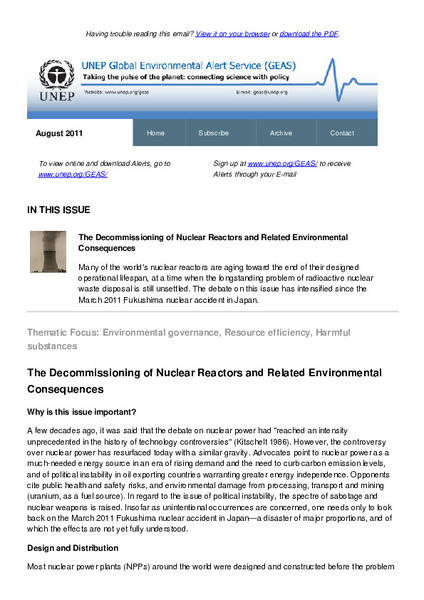| dc.description | A few decades ago, it was said that the debate on nuclear power had "reached an intensity unprecedented in the history of technology controversies" (Kitschelt 1986). However, the controversy over nuclear power has resurfaced today with a similar gravity. Advocates point to nuclear power as a much-needed energy source in an era of rising demand and the need to curb carbon emission levels, and of political instability in oil exporting countries warranting greater energy independence. Opponents cite public health and safety risks, and environmental damage from processing, transport and mining (uranium, as a fuel source). In regard to the issue of political instability, the spectre of sabotage and nuclear weapons is raised. Insofar as unintentional occurrences are concerned, one needs only to look back on the March 2011 Fukushima nuclear accident in Japan, a disaster of major proportions, and of which the effects are not yet fully understood. | en_US |


